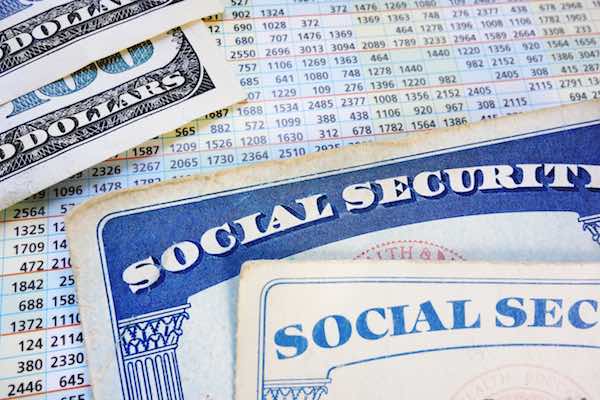Legislation has been reintroduced to reform the Windfall Elimination Provision (WEP) which could potentially mean more retirement income for some retired federal employees.
The Public Servants Protection and Fairness Act (H.R. 4260) was reintroduced by Congressman Richard Neal (D-MA). It was previously introduced in 2019 and again in 2021.
The legislation would do the following:
- Introduces a new proportional formula for new retirees starting in 2025
- Provides relief payments to current retirees impacted by the WEP
- Includes a benefit guarantee so that no current or future retirees can be worse off as a result of the bill
In a statement about the bill, Neal said:
The WEP negatively affects 2 million retired public servants across the country, including almost 90,000 in Massachusetts, and our firefighters, teachers, and police officers deserve relief. The Public Servants Protection and Fairness Act garnered broad bipartisan support in the 117th Congress because public employees not miss out on the Social Security benefits they earned over decades of hard work. With this legislation, these valued members of our communities will have greater retirement security and peace of mind.
Key Provisions of the Legislation
Monthly Payments to Current Retirees Impacted by the WEP
Under the terms of the bill, current retirees impacted by the WEP would receive payments of $150 per month. These relief payments would begin nine months after the enactment of the bill if it were to become law and would continue each month for as long as the eligible individuals are receiving Social Security benefits. The relief payment is limited to the amount of each worker’s current WEP reduction.
Alternative Formula for New Retirees
Assuming the bill were to become law as written, it establishes a new Public Servant Protection (PSP) formula beginning in 2025 for new retirees based on all employment in covered and noncovered jobs, paying Social Security benefits in proportion to the share of a worker’s earnings that were covered for Social Security purposes.
The PSP formula would apply to workers who are receiving a pension based on noncovered earnings and who have less than 30 years of substantial work in Social Security-covered employment.
The bill maintains the current WEP exemptions (i.e., for individuals not receiving a pension and for those with 30 years of coverage) and extends them to the PSP as well. In other words, people are exempt from both the PSP and the WEP if they have 30 or more years of coverage or if they do not receive any pension based on their state or local employment.
Individuals will receive the higher of the two formulas, PSP or the current Windfall Elimination Provision (WEP).
According to Neal, about 70% of retirees affected by the WEP would receive a higher benefit under the new PSP formula. Other retirees would be protected by the benefit guarantee and not see any change in benefits because they already receive higher benefits under the WEP than they would under the proportional formula due to their specific earnings patterns.
What is the Windfall Elimination Provision (WEP)?
According to the Social Security Administration:
The Windfall Elimination Provision (WEP) is a formula used to adjust Social Security worker benefits for people who receive “non-covered pensions” and qualify for Social Security benefits based on other Social Security–covered earnings. A non-covered pension is a pension paid by an employer that does not withhold Social Security taxes from your salary, typically, state and local governments or non-U.S. employers.
The WEP can affect individuals who earn a retirement or disability pension from an employer who didn’t withhold Social Security taxes and who qualify for Social Security retirement or disability benefits from work in other jobs for which they did pay taxes.
The Windfall Elimination Provision can apply if:
- You reached age 62 after 1985; or
- You became disabled after 1985; and
- You first became eligible for a monthly pension based on work where you didn’t pay Social Security taxes after 1985. This rule applies even if you’re still working.
The WEP also affects Social Security benefits for federal employees who performed federal service under the Civil Service Retirement System (CSRS) after 1956. SSA won’t reduce your Social Security benefit amounts if you only performed federal service under a system such as the Federal Employees’ Retirement System (FERS). Social Security taxes are withheld for federal employees under FERS.



